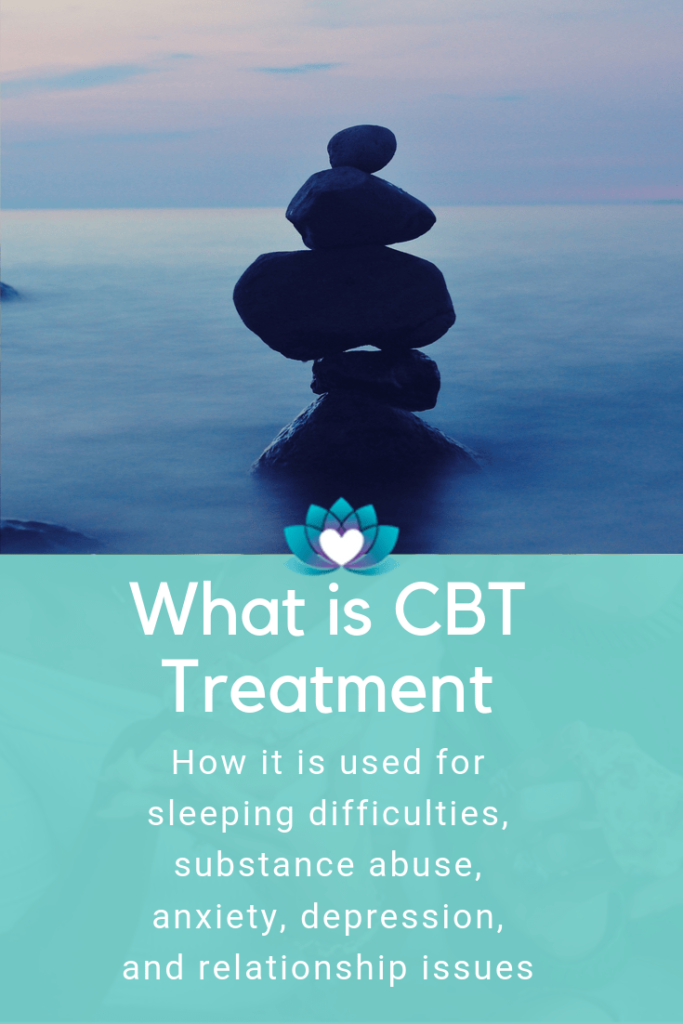Just what is CBT Treatment exactly? Cognitive behavioral therapy (CBT) treatment is a problem solving, goal-focused psychotherapy treatment used in treating a variety of conditions. It’s a practice that has a foundation built upon the notion that patterns of thinking or behaviors stemming from thoughts are the source of suffering. CBT is used for things such as sleeping difficulties, substance abuse, anxiety, depression, and relationship issues. Its success in treating these states lay in its ability to change the outcomes by altering their beginnings as thoughts, images, beliefs, and attitudes. How a person processes and relates to the world affects how they behave, and are the result of their cognitive or thought processes.
Not all issues can be solved with CBT; some people will benefit from adjunct therapies, but adding CBT as treatment provides additional value. Typically clients do one session per week lasting 30-60 minutes and will see results within 5 to 10 months. The client and therapist work together to identify existing patterns and develop strategies for adjusting them. CBT is somewhat like a new toolkit that a patient can use to improve their emotional well being and can provide a lifetime of positive effect.
Cognitive behavioral therapy is, in part, a combination of psychotherapy and behavioral therapy. The difference between the two is that Psychotherapy is more about narrative and how events shaped us, whereas behavioral therapy is a closer look at the relationship between problems, behavior, and thoughts. At Clearheart, our counselors use both CBT in a personalized application as well as other traditional and innovative forms of therapy. We customize our clients’ therapy to their specific needs and the personalities of each individual patient or couple.
The CBT Theory
The understanding behind CBT is that events in themselves alone are not the cause of our trauma but that our thought processes around them are. Negative thoughts, whether no matter the stories involved in producing them are what prevent us from feeling and behaving in ways that give us peace and happiness. In other words, the habit of being negative or having negative thoughts causes the ailments, not the stories behind the events which initially produced our negative patterns.
Where Do Negative Thoughts Come From?
Developing automatic and fixed thinking patterns can begin in childhood. Rules for a living are what a human develops as it grows from one experience to another. At times, these rules can become what is known as dysfunctional assumptions. Due to our personal experience, we may either consciously or unconsciously create predicted outcomes for new similar circumstances. If these expected outcomes prevent us from living life in a way that we desire or causing other impediments, then these thought patterns are dysfunctional. Cognitive-behavioral therapy helps the person understand that this is what is happening. Identify the patterns or negative assumptions, and it is possible to set aside automatic thoughts.
By reexamining our life experiences and situations and our systematic responses to them, we can change them going forward with new perspectives and understandings. Negative things can and do happen; however, it is our reaction to them that causes disturbances. When we expect difficulty or pain, we often end up creating it. As a result of our biased interpretations of situations, it can be challenging to change our habits and patterns significantly. When we can face our biases and understand our processes in thinking and reacting, we empower ourselves in creating new ways of living and being. CBT helps people to correct misinterpretations and see not only the world in a new light but of ourselves as well. Contact Clearheart Counselling today to discuss how CBT therapy can help you.

